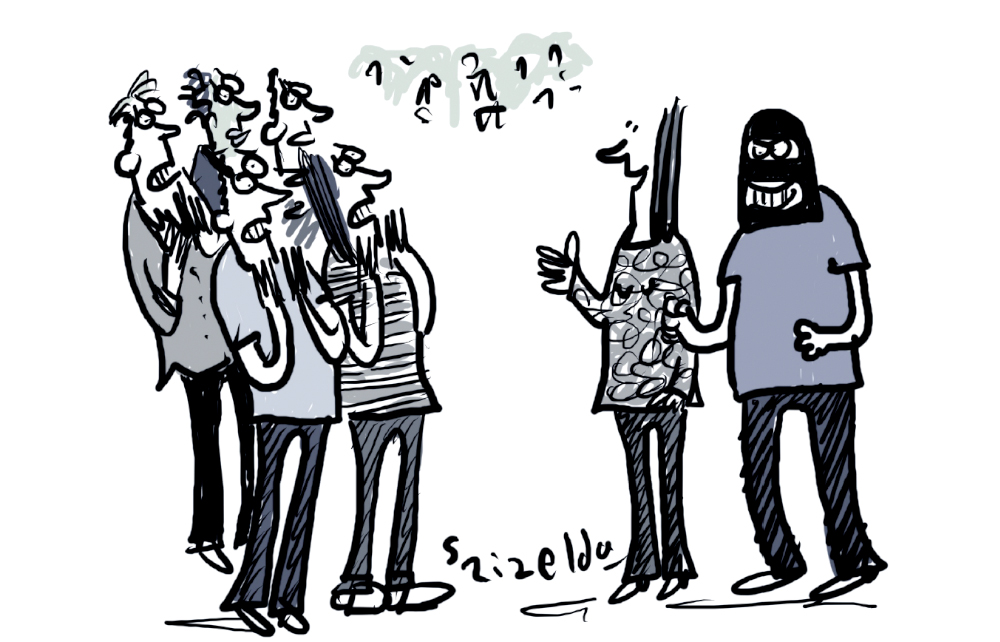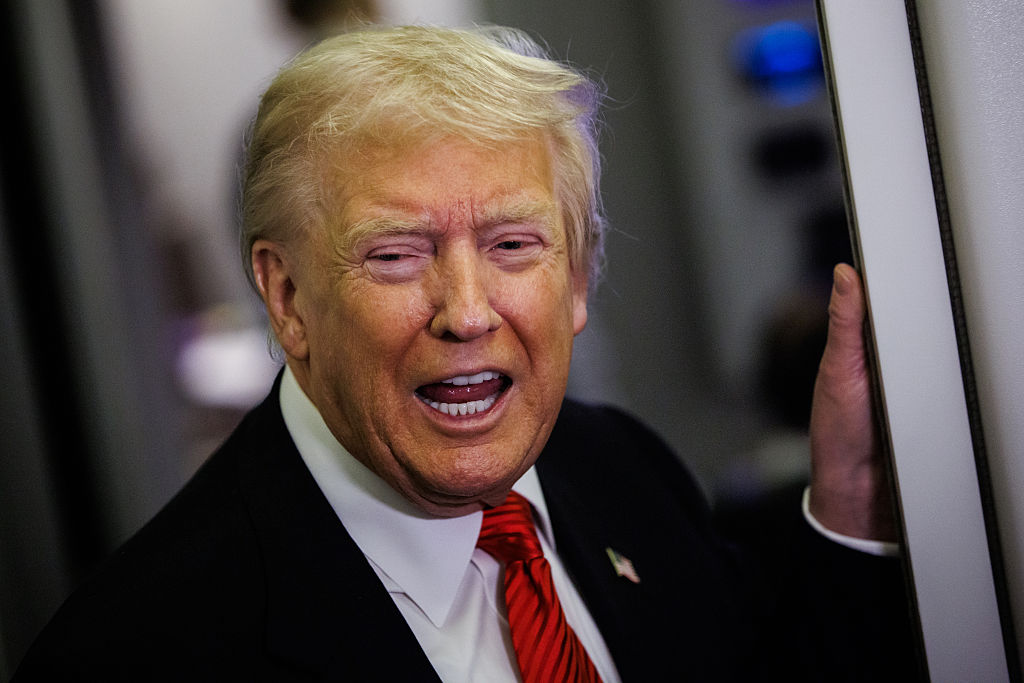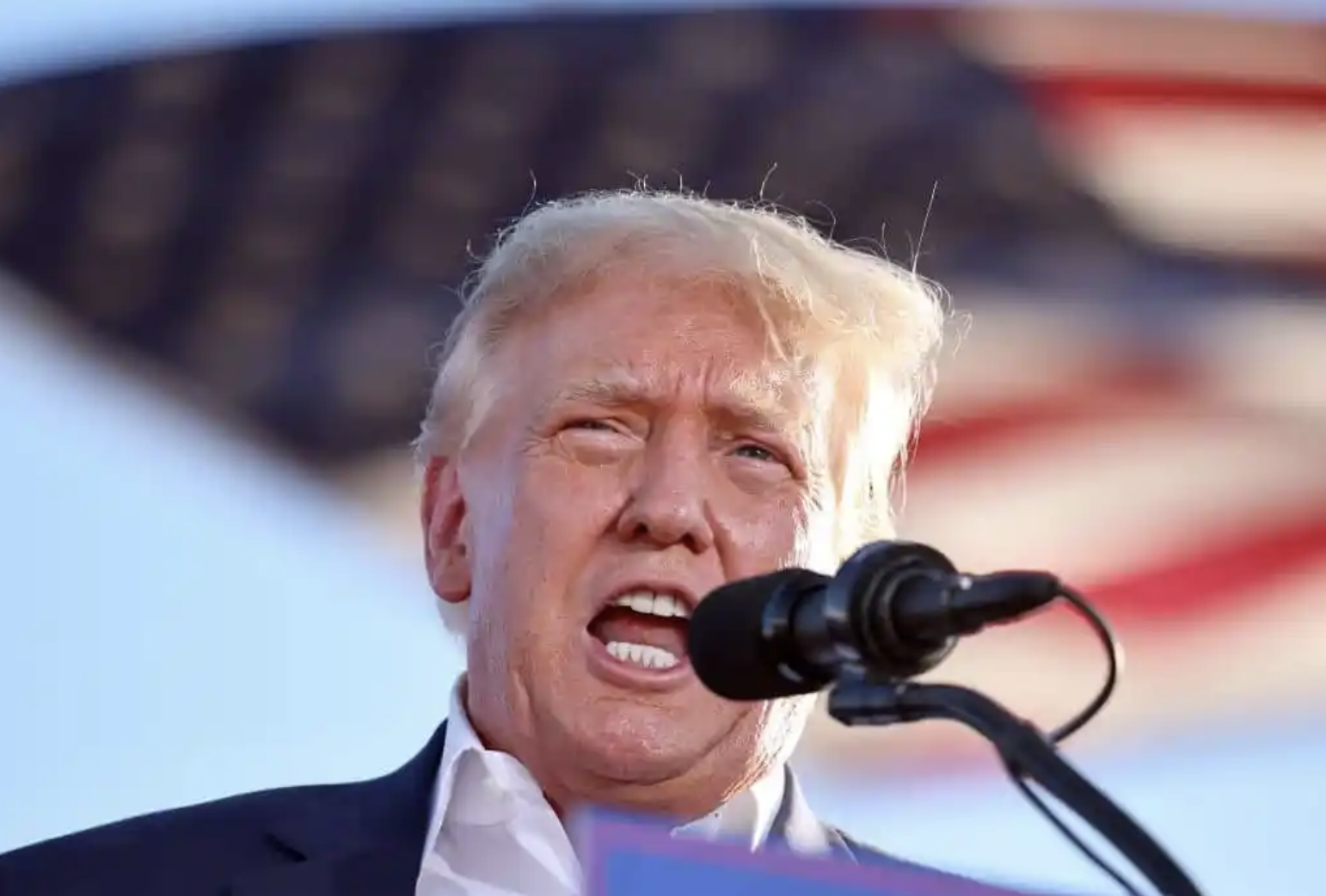Something has changed in America’s psyche. Violence has become more acceptable. It’s not just that we’ve seen two attempted – and very nearly successful – attacks on Donald Trump’s life, it’s that a worrying number of young Americans cheered on those attempted assassinations and still wish they had succeeded.
Since early this year there has been widespread public support for smashing up Tesla dealerships – and for shooting Elon Musk. An unprecedented 10,000 new threats have been made against Senate and congressional members just this year, according to Capitol Police.
Applause for the actual murder of UnitedHealthcare CEO Brian Thompson in December goes on, unabated, online. His handsome young accused killer, Luigi Mangione, is praised, respected and even worshipped by a small – but growing – social media community. Elias Rodriguez, the man accused of killing two Israeli embassy officials in Washington on May 21, had praised Mangione on his social media.
Americans always used to prize fighting it out at the ballot box. Now, an apparently psychotic murderer has become a hero for youngsters, who imagine he stands for vigilante justice against corporate greed.
Why was there mass circulation of images featuring Elon Musk being killed by Nintendo characters?
In early May, a former director of the FBI posted what many observers believed to be a threat to assassinate the President: a picture on Instagram of some shells arranged on the sand to read “8647,” along with the caption: “Cool shell formation on my beach walk.” James Comey insists his post was innocent. Yet to “86” someone is slang for “get rid of” or “kill” and “47” is the number of the current presidency, so it’s easy to see why Trump-appointed authorities see the matter differently.
Serious acts of violence are still, mercifully, uncommon. But the response to such acts is significant – surface tremors that signal powerful tectonic shifts in the civic ground on which Americans have walked, confidently, for centuries. The United States has been mostly free from large-scale political violence because the country has been graced by the combination of two remarkable gifts – an ingeniously well-designed democratic system and the proliferation of large-scale civic norms. These mean that the US can, paradoxically, stay permanently in revolution and change without the bloodshed which has defined so much of world history. It’s more than a historical anomaly. It’s been an economic and ethical miracle. But it might not last.
At the Network Contagion Research Institute we’ve been scratching our heads ever since we noticed this explosion of online support for Thompson’s murder in December last year. It was disturbing to say the least. What could possibly explain the wild-eyed celebration of extreme violence on the streets of New York? Why was there a mass circulation of images featuring Musk being killed by Nintendo characters?
Well, after working through a heap of survey data and social media language trends, we’ve come to a series of startling conclusions about a change that’s happening in US society. The NCRI has uncovered more than just an online ecosystem of unsettling ideas. What we’re seeing is the rise and proliferation of assassination culture on the internet. It’s more than just a collection of jokes, symbols and memes. It’s an entirely new subculture for incubating radical and subversive ideas that are anathema to the things America has historically stood for.
Over the past several decades we have assumed that calls for political violence come from the far right, and they often have. What we never expected to see was the enormous growth in similar calls emerging from the mainstream left. We undertook a nationwide survey to understand it better and discovered that a breathtaking half of those who identified as politically left-wing agreed that the murder of public figures could be at least somewhat justified. What’s more, 56 percent of them agreed that there could be some justification for killing Trump. Just under half agreed that the same could be said about the fate of Musk. Tesla dealerships, too, merit at least some destruction, according to 59 percent of those surveyed.

‘‘It’s OK, everyone! Toby’s a left-wing thug’
And so we took a deeper dive into the online networks where so many young people spend much of their time today. We found a massive upsurge in coded endorsements of political violence, as well as users adopting and wielding the name “Luigi” as a codename for killing executives and wealthy individuals, all gamified with Nintendo memes featuring the character Luigi, an Italian plumber from the Super Mario series, as a wink and a nod to Mangione
It’s acceptable, it’s normalized, and, most strangely, it’s increasingly being portrayed as fun. It looks like the dissemination of what scholars call permission structures. Think of them as a kind of psychological corridor that can lead people, ego and pride intact, toward radically antisocial or even subversive behaviors such as the murder – or attempted murder – of public officials and corporate executives.
What would drive any American to actually support or condone such violence? It’s clear that the US healthcare system is unequal, unfair and in need of reform. But never in my life have any of my friends openly said that the public execution of C-suite executives might be an acceptable course of action. It’s not the America I grew up in, that’s for sure. Seeing the rise of assassination culture has been a bit like discovering an entirely new continent.
If you want to understand America today, the most compelling explanations revolve around a cluster of personality characteristics called authoritarianism. There are two kinds: a right-wing kind and a left-wing kind. Many mainstream academics say that all our present political instability revolves around a critical mass of people amenable to behaviors linked with the right-wing type. A large percentage of the American public, they say, are susceptible to nationalist fervor (conventionalism); hatred of immigrants, outsiders, and deviants (aggression); and an intense desire to bind their destiny to a messianic hero (submission). I’m sure you can work out who they’re referring to.
Yet it runs against common sense to imagine only right-wing people can act pathologically when most of the postwar world lived, for a while, under the intensely authoritarian – and quasi-genocidal – domination of communist regimes. And very few of us can shake the intuition that the intense “woke” energy which has so permeated American culture over the past decade shares these hallmarks of authoritarian tyranny.
It probably won’t surprise you to learn that there has been a kind of intellectual embargo on saying so lately, because most explanations coming from mainstream US academia about cultural politics have fixated on the conservative version. The godfather of right-wing authoritarianism theory, the Canadian psychologist Bob Altemeyer, labeled the left-wing variety as nothing more than a “Loch Ness Monster”: it doesn’t actually exist.
Praising political violence on social media gives individuals a sense of control over those nefarious elites
Newer thinkers, however, have started to change their minds. Academics have begun work on a new framework that describes an emergent left-wing authoritarianism. Their definition contains the following terms: antihierarchical aggression – a desire to overthrow the social order, punish those in power and adopt techniques of political violence to do so; anticonventionalism – a total repudiation of the current state of things and a belief that those who disagree with you are not merely wrong, but deeply immoral; and top-down censorship – a willingness to cut off and excise, by physical force if necessary, those who are deemed offensive or intolerant. We see these behaviors growing louder each year – both online and on campuses across America. Anyone who has lived in the US for more than a few years will have noticed this growing trend for undermining civic values and authority (antihierarchical aggression); condemning political enemies such as conservatives, religious people or even liberals and centrists as morally irredeemable (anticonventionalism); and ruthlessly fixating on “canceling” anyone who peeks above the parapet on issues such as gender or race (top-down censorship). Yet there is insufficient public conversation. It’s as if we hope, if we ignore it, this threat to western civilization will simply vanish.
When Luigi Mangione told his friend about the planned assassination, he admitted he wanted to break away from being an “NPC” – video-game slang for non-player character – and revolt against his generation’s shared sense of helplessness, contempt and lack of agency. Such a wish relates to a lack of what psychologists call “locus of control” – the feeling that you are in control of your own life.
In our research, we’ve noticed that those with high locus of control are much less susceptible to antisocial attitudes. But those who lack it – who feel that they are unable to make decisions, generate wealth, buy a home, or have a successful future – are vastly more likely to subscribe to the belief that “the elite,” “the rich” or “structural domination” are to blame for their powerlessness.
It might seem like a leap to go from feeling a little bit out of control to wanting to shoot Musk in the face. But these are unprecedented times: the first generation that grew up online has come of age and a sense of civic responsibility is being replaced by nihilism.
It’s increasingly likely that social media itself is actually causing a measurable reduction in people’s locus of control. Though sold as a way of enabling self-sufficiency, online behavior actually facilitates a general sense of helplessness. An endless feed of disaster scenarios from around the world understandably fosters hopelessness. What can any individual do? At the same time, it’s never been easier to cheer on violence while remaining hidden.
Praising political violence on social media gives individuals a sense of control over nefarious elites. It fortifies their fragile sense of autonomy and offers a public catharsis, such as 5th-century Athenians might have felt after the performance of a tragic drama or Romans during the bloody shows in the Colosseum.
Post by post, tweet by tweet, the civic ground that supports democratic disagreement is cracking
Online sadism is widespread. Individuals join the mob to gain a feeling of power over the people they think have hurt them. And most importantly, perhaps, it clears the psychological corridor toward new permission structures that lead to widespread applause for actual killers such as Mangione. The rise of assassination culture is the manifestation of these trends circulating on social media and spreading beyond. We call it a “culture” because it contains all the things that other cultures have: mental and linguistic models of how the world works, collective sanctions for unacceptable behaviors, and publishable material, such as memes, that transmit the “meaning” of these cultures to others.
Even if an AI-generated image of Mangione cannot compete with Homer’s Odyssey in terms of quality, they both express a human desire to create shared meaning and continuity. Memes, like religious art, sculpture or poetry, allow individuals to join an immortal pantheon. For left-wing authoritarians, Mangione is the latest iteration in a long line of sacred heroes.
As the permission structures for political violence continue to incubate and grow online, it foretells nothing but bad news for American democracy.
When enough people tolerate, permit, and applaud the contemplated murders of Musk or Trump, or men of their ilk, someone will try to be a hero. And then someone will try again. Post by post, tweet by tweet, the civic ground that supports democratic disagreement is cracking. And the cracks open into an abyss.
Max Horder is a senior fellow at the Network Contagion Research Institute. He has a PhD in anthropology from Princeton University. His next book, Written By the Victors, will be published by Penguin Allen Lane in 2027.
This article was originally published in The Spectator’s July 2025 World edition.























Leave a Reply